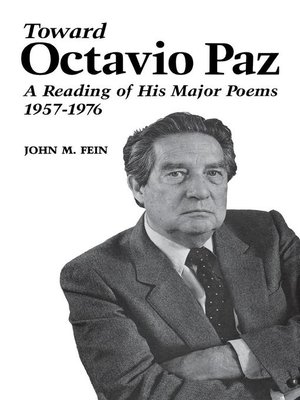
Sign up to save your library
With an OverDrive account, you can save your favorite libraries for at-a-glance information about availability. Find out more about OverDrive accounts.
Find this title in Libby, the library reading app by OverDrive.



Search for a digital library with this title
Title found at these libraries:
| Library Name | Distance |
|---|---|
| Loading... |
The undisputed intellectual leadership of Octavio Paz, not only in Mexico but throughout Spanish America, rests on achievements in the essay and in poetry. In the field of the essay, he is the author of more than twenty-five books on subjects whose diversity — esthetics, politics, surrealist art, the Mexican character, cultural anthropology, and Eastern philosophy, to cite only a few — is dazzling. In poetry, his creativity has increased in vigor over more than fifty years as he has explored the numerous possibilities open to Hispanic poets from many different sources. The bridge that joins the halves of his writing is a concern for language in general and for the poetic process in particular.
Toward Octavio Paz defines this process of creation through a close examination of the books that represent the summit of the poet's development, three long poems and three collections. It is intended for readers of varied poetic experience who are approaching Paz's work for the first time.
By studying the relationship of the parts of the poem, particularly structure and theme, Fein traces the poet's growth through approaches to the reader, each embodied in a separate work. From the divided circularity of Piedra de sol through the intensification of the subject of Salamandra, the multiple meanings of Blanco, the polarities of Ladera este, and the literary solipsism of Pasado en claro, to the silences of Vuelta, Paz has shaped his audience's responses to his work through suggestion rather than control. The result is not only a new poetry but a new receptivity.







